#Harry Mulisch
Text
That question is too good to spoil with an answer.
—Harry Mulisch
11 notes
·
View notes
Text

— Maurice, E.M. Forster

— De ontdekking van de hemel (The Discovery of Heaven), Harry Mulisch (trans. yours truly)

— These Violent Delights, Micah Nemerever
#yeahhh. whatever this is#id call it a teenage mentality but only one of these are teenagers...#max and onno acting like a teenage romance at 33 good for them good for them#webweaving#parallels#maurice#these violent delights#de ontdekking van de hemel#the discovery of heaven#em forster#harry mulisch#micah nemerever#books#words#my post
16 notes
·
View notes
Text
Die Arbeit wird auf Kosten der Libido verrichtet, wodurch der Körper desexualisiert wird, um am Ende nur noch ein Werkzeug sein zu können.
Harry Mulisch: "Das sexuelle Bollwerk", S.134
2 notes
·
View notes
Text
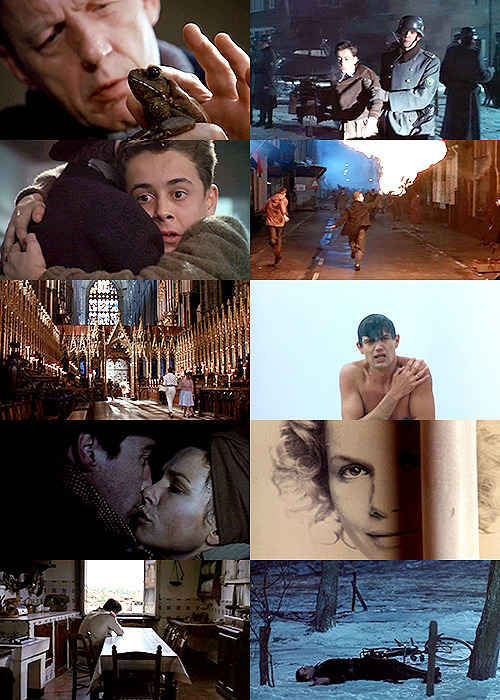
The Assault (1986). A Dutch doctor, haunted by grueling childhood memories of World War II, struggles to find peace as he spends his life looking for answers about the tragic night that shaped him.
A pretty effective WWII thriller with a unique perspective. The performances in this film - along with the compelling mystery at the centre of it - are the real highlights here as the film does often feel let down by some clunky pacing and some mundane directorial choices. It's a bit of a bummer, because there does feel like there could be a masterpiece in here somewhere, but the film never quite figures itself out. 7/10.
#the assault#1986#Oscars 59#Nom: Foreign Film#Won: Foreign Film#Fons Rademakers#Gerard Soeteman#harry mulisch#Derek de Lint#Marc van Uchelen#Monique van de Ven#John Kraaijkamp Sr.#holland#netherlands#dutch#world war ii#war#7/10
2 notes
·
View notes
Photo
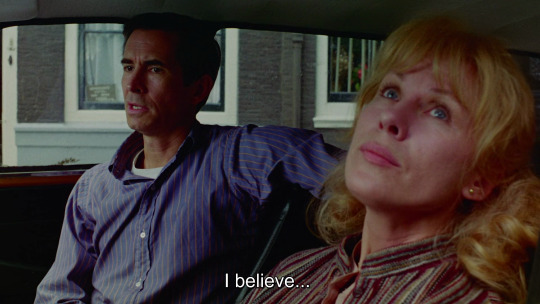
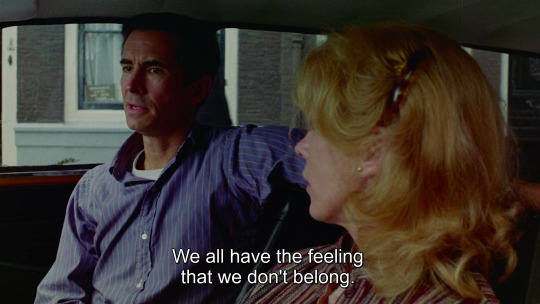
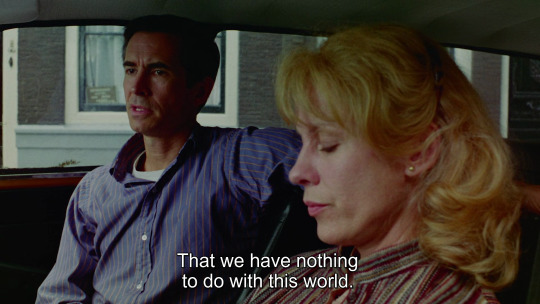
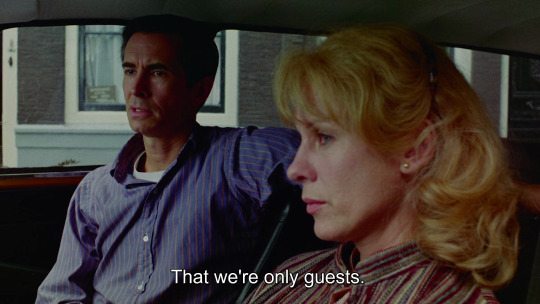
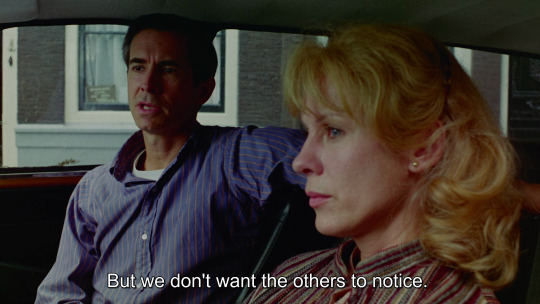
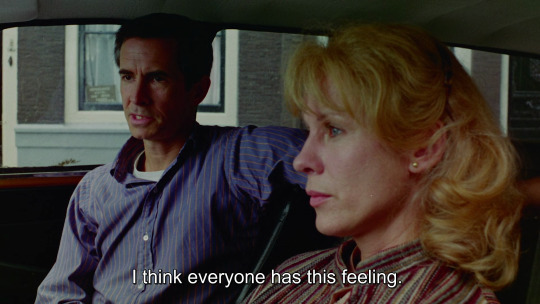
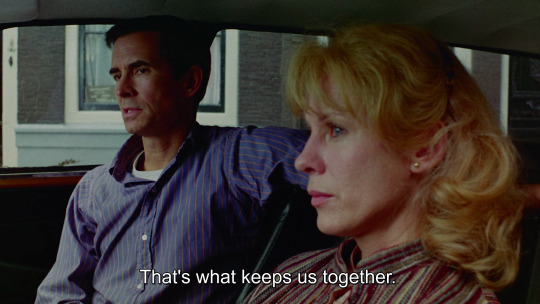
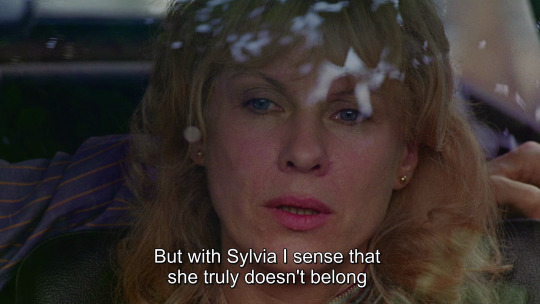
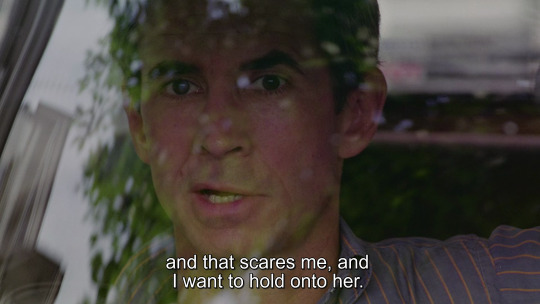
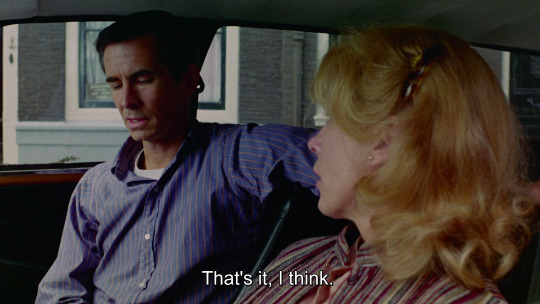
Twice a Woman (George Sluizer, 1979).
#george sluizer#bibi andersson#anthony perkins#twice a woman#twee vrouwen#jurriën rood#harry mulisch#mat van hensbergen#leo de boer#michel bodt#renee deyman#twee vrouwen (1979)#twice a woman (1979)
47 notes
·
View notes
Text
Ook het afgrenzende moet steeds afgegrensd worden; maar de taak is hopeloos, want alles raakt alles in de wereld. Een begin verdwijnt nooit, zelfs niet met het einde.
Harry Mulisch, De aanslag
0 notes
Text
De link van mijn ' Arsenale delle Culture' met Piranesi, Escher, Jeroen Krabbé en Sean Connery
Hoe je van Toos van Holstein's installatie 'Arsenale delle Culture' in Perugia via haar labyrintische hersenspinsels bij Umberto Eco en Jeroen Krabbé komt? Laat je door beeld en woord leiden in deze blogaflevering van TOOS&ART. #kunst #art #expo
aan het tekenen in Perugia met op de achtergrond het beeld van Perugino
Onder het toeziend oog van de grote Renaissance-kunstenaar Pietro Vannucci, beter bekend onder zijn bijnaam Perugino, komt tekeninspiratie natuurlijk als vanzelf. Net als gedachtenspinsels over een andere Italiaan: Piranesi. En associaties over ‘De Ontdekking van de Hemel’ en ‘De Naam van de Roos’. Films gemaakt naar…

View On WordPress
#bibliotheek#De ontdekking van de hemel#decor#Escher#filmregisseur#fort#Harry Mulisch#Hemel#internet#Jeroen Krabbé#klooster#Naam van de roos#Open Monumentendag#pakhuis#Perugia#Perugino#Pietro Vannucci#Piranesi#rijksmonument#Rocca Paolina#Sala Cannoniera#Sean Connery#Umberto Eco
1 note
·
View note
Text
“Nature is bored to death.” Another of [Harry] Mulisch’s sentences. This happens with dead people you have known. They go on talking. It was a real Mulisch sentence, too. You did not have to agree, and he was not interested in that. He had said it, and it meant something. When I then replied that, with that one sentence, he had made an entire German repertoire (Schubert, Schumann, Wolf, etc.) redundant, all those emotional Lieder, in which the singer identifies with nature and knows what the stream and the tree are feeling--in short, the poetry of human emotions projected onto nature--then he laughed. And of course it is true that nature feels nothing, as every positivist knows. Nature cannot threaten, a stream cannot think, roses cannot despair...Roses, Harry would probably say, simply are, they have nothing more to do than that, above all they have no need to concern themselves with us and our feelings...Now that we know all the laws, it is easy enough to put romantic misunderstandings in their place, to strip down myths and stories, but then things do become rather bare. Here, by the sea, you can still read the constellations to which the Greeks gave the names of people and animals, groups of stars that also allowed the Phoenicians to find their way to this island by looking at the sky, a place where the moods of the sea, the whims of the wind, the absence or presence of the moon never leave you untouched, even now. So was Mulisch wrong? No, of course not. And yet, there was a curious contradiction in his one-liner, because he, too, was attributing a sentiment to nature. Boredom is a human state of mind, and one with a great creative effect.
-- Cees Nooteboom, from 533 Days, translated from the Dutch by Laura Watkinson
If sometimes I say that flowers smile
And if I should say that rivers sing,
It's not because I think there are smiles in flowers
And songs in the rivers' flowing...
It's so I can help misguided men
Feel the truly real existence of flowers and rivers.
Since I write for them to read me, I sometimes stoop
To the stupidity of their senses...
It isn't right, but I excuse myself,
Because I've only taken on this odious role, an interpreter of
Nature,
Because there are men who don't grasp its language,
Which is no language at all.
-- Fernando Pessoa, from poem “XXXI” in The Killer of Sheep, writing as his heteronym Alberto Caeiro, translated from the Portuguese by Richard Zenith
0 notes
Text
Wenken voor nu
Iedere eerste maandag van de maand is het toch weer een merkwaardig moment: om twaalf uur gaan de noodsirenes af. Ik herinner me van mijn jeugd in Amsterdam een hels lawaai – minutenlang onheilspellend gehuil. Dat is zo’n zeventig jaar later beduidend minder allemaal: de maandelijkse test bestaat nog steeds, maar het aantal sirenes lijkt drastisch verminderd. Meestal merk ik pas na een paar…

View On WordPress
#1962#atoombom#BB#Bescherming Bevolking#Chroesjtsjov#Cuba#Foreign Affairs#Frédéric Gros#Harry Mulisch#IKV#Kennedy#kernoorlog#kernwapens#Koude oorlog#Mary lou Minor#messianisme#Moskou#Oekraïne#Ontspanning#oorlog#Patria#Poetin#Polemologie#Radchenko#Röling#sirene#U2#Zubok
0 notes
Text
Ik lees KliFi van Adriaan van Dis want een mens is wel eens nieuwsgierig naar wat een Literair Schrijver doet met genrefictie-knuffelende narratieven en dergelijke, en mijn hemel waar ben ik aan begonnen. Het eerste hoofdstuk was nog interessant, pakkend zelfs, maar inmiddels halverwege hoofdstuk 4 voel ik me hartstikke bekocht. Niet dat het slécht geschreven is, maar wat een typische literaire hoogdravendheid die pretendeert met beide voeten op de grond te staan. En dan die Nederlands-literaire neiging om op de meest vettige manier over seks te schrijven, van het soort tussen-neus-en-lippen-door frases die onder je huid blijven plakken als vliegen. Na een orkaan die de kust verwoestte en lijken die in de achtertuin opgestapeld beginnen te worden: “Vrouwen met geschaafde rondingen zochten steun bij elkaar.” Adriaan, vriend, waarom?
#Dutchposting#I'd considered posting this in English but it just wouldn't hit the same#basically I'm reading a climate fiction book but written by a Dutch literary writer#this is somewhat of a Big Thing because literature lovers are notorious for being condescending about genrelit#(despite most literature writers like harry mulisch et al. actually utilising fantastical elements within their narratives#because it's never quite as clear-cut as purists want things to be)#but good lord it started out interesting and then just turns into the annoying middle aged man has opinions kind of voice#but the casual objectification of women /while describing wounded people after a destructive hurricane/ is what made it a DNF
16 notes
·
View notes
Text
Ideas are like falling eggs, so put down some straw
Yes, writer's block -- or any kind of creative block, for that matter -- is awful. But you know what else sucks? Getting so many cool ideas you get overwhelmed. Either the ideas drop by the wayside and you forget them, or they keep dinging around in your head and leave you paralysed.
There's a Dutch novel from 1952, archibald strohalm (no capitals, even though it's the main character's name). It's actually the debut novel of Harry Mulisch, considered by many to be the best Dutch writer of all time. Indeed, this debut was considered so good that it was given an award in 1951, one year before it was published.
In the book, the titular character is annoyed by the puppet shows given in the village square because they are always extremely moralising and didactic. Hence, he sets out to make his own, much better puppet show. In the proces of writing it, he becomes so obsessed with the creative process that his mind begins to fray, causing him to hallucinate birds everywhere. Eventually, he envisions ideas for his puppet show dropping from the sky like eggs, and whenever he is unable to stop what he is doing to catch them, they smash to bits on the ground, lost forever. Naturally, this isn't exactly a break on his mental decline.
I reckon that anyone who has been grabbed by the creative process might well recognise some version of this feeling. I certainly do: I'm still actively working on the first three projects of Hunting Darkness, but the project at large has a list of 35+ additional projects I would love to get into.
I believe there's no way to stop the eggs from falling. I'd even argue you shouldn't! After all, you need cool ideas for your cool projects. But watching them get smashed is demoralising and you can't constantly run to catch them without exhausting yourself. So what do you do?
You cover the ground in straw! Set up a system that allows the eggs to drop down safely for you to collect them when you have the chance. This can mean taking notes in a notebook or on your phone, recording yourself describing the idea, texting it to yourself, or whatever works for you. Then, once you actually have the mental capacity and time to do so, you can properly examine the egg and decide what to do with it.
This might seem obvious to some (or even all). But I can really struggle with putting my attention where it needs to be without conscious effort. Forcing myself to do it more automatically has really helped in actually getting some writing done.
Don't turn yourself into a crazy puppet show writer. Turn yourself into a happy one.
#writer's block#creative block#writing advice#writing tips#my writing#dutch literature#falling eggs#how was there no falling eggs tag yet?#hunting darkness
2 notes
·
View notes
Text

"All human beings were of course unique, and they only discovered that when someone else fell in love with them or when no one ever fell in love with them."
— Harry Mulisch, The Discovery of Heaven
Painting by Graham Dean
#literature#quote#reading#writing#book#novel#author#writer#books#eckhart tolle#art#artist#painting#graham dean#couple#kiss#love#passion#relationship#human#unique
48 notes
·
View notes
Text
Paradoxa zählen zu meinen besten Freunden.
Harry Mulisch: "Das sexuelle Bollwerk", S.50
0 notes
Text
Eerste boekopdracht: Harry Mulisch - de ontdekking van de hemel
Beste Lezers,
Ik heb besloten om voor mijn eerste boekopdracht het boek de ontdekking van de hemel te lezen.

Het boek is geschreven door Harry Mulisch. Toen ik zei dat ik dit boek ging lezen, zeiden veel dat het een boek is van een beroemde schrijver. Veel weet ik er niet over, maar ik kijk er wel naar uit om het te leen en jullie er meer over te vertellen!
Het boek heeft 901 pagina's, heeft als uitgeverij De Bezige Bij en is geclassificeerd in de genres: Roman, Psychologische fictie en Filosofische fictie.
Bij deze boekopdracht moet ik een soort dagboek bijhouden van alles wat ik opmerk en lees. Ik kijk er naar uit om die te delen met jullie!
(update)
De eerste 15 pagina's zijn ondertussen uitgelezen en ik moet zeggen dat ik heel verward ben, maar ook geintrigeerd.
In het boek hebben twee personen een conversatie over een zaak van ruim 70 jaar mensentijd geleden. Het gebruik van mensentijd geeft al direct de intensie dat de twee personen niet per se mensenlijk zijn. Ze praten ook over een oneindig licht - Logos Spermatikos, dat baanbrekende reden betekend in het Grieks.
"Ook wij hebben pas zo'n vijfenzeventig mensenjaar geleden tot ons afgrijzen ontdekt, hoe snel de technische vaardigheden daar beneden toenamen en wat de mensen er mee zouden doen" zei een van de personen in de conversatie. Dit geeft aan dat ze misschien van de hemel komen, doordat ze verwijzen naar de aarde als 'daar beneden'. Vervolgens antwoord de andere personage: " Ondanks alle problemen zag ik zeventig mensenjaar geleden opeens een mogelijkheid, de gewenste Vonk niet in vier jaar maar al in drie generaties in de geest en het vlees te krijgen." De vonk wordt enkele zinnen erna verwezen als de eerste wereldoorlog, maar ik ben daar niet honderd procent zeker van, omdat de Vonk ook misschien iemand kan zijn in de plaats van iets, maar ik kan dat alleen maar uitvinden door verder te lezen.
De volgende pagina gaat hij/zij/het er meer op in en verteld over een ene Delius Wolfgang en zijn ongelukkig huwelijk met een jongere vrouw genaamd Weiss en hoe zij hem juist voor de tweede wereld oorlog verliet.
Tot nu toe ziet het er interressant uit!
3 notes
·
View notes
Text
Braille in the Netherlands: How Languages Found Expression
Braille, the tactile writing system invented by Louis Braille, has transcended borders and languages, becoming a vital tool for blind and visually impaired individuals worldwide. In the Netherlands, Braille has played a significant role in enabling accessibility and literacy, allowing the Dutch-speaking blind community to engage fully with written language and culture. This article explores the history, development, and impact of Braille in the Netherlands.
The Introduction of Braille in the Netherlands
The adoption of Braille in the Netherlands began in the late 19th century. As the Braille system gained international recognition, Dutch educators and advocates for the blind saw the potential it held for improving literacy and independence among visually impaired individuals. By the early 20th century, Braille had been integrated into Dutch schools for the blind, and efforts were underway to produce Dutch-language Braille materials.
Development of Dutch Braille
Adapting Braille to the Dutch language involved creating a Braille alphabet that matched the specific needs of Dutch phonetics and orthography. The Dutch Braille system uses the same six-dot cell configuration as the original system but with specific dot patterns assigned to the letters, numbers, and punctuation used in Dutch.
Alphabet and Numbers: The Braille alphabet for Dutch corresponds directly with the standard alphabet, using unique combinations of dots for each letter. Numbers are denoted by a special numeric indicator followed by the letters a-j, which represent the digits 1-0.
Punctuation and Special Characters: Punctuation marks and special characters were also developed to reflect Dutch typographical norms. This includes unique patterns for common punctuation, diacritical marks, and other symbols.
Expanding Access to Braille
Over the decades, various organizations in the Netherlands have worked tirelessly to expand access to Braille resources. Key institutions like the Bartiméus Sonneheerdt Foundation and the Royal Dutch Visio have been at the forefront of this effort, producing Braille books, educational materials, and other resources to support the blind community.
Braille Libraries: Braille libraries have been established to provide a wide range of reading materials, from textbooks and literature to magazines and newspapers, all in Braille.
Educational Programs: Specialized schools and programs have been developed to teach Braille to children and adults, ensuring that visually impaired individuals receive the education they need to thrive.
Technological Advancements: The advent of digital technology has further enhanced access to Braille. Devices such as refreshable Braille displays, Braille e-readers, and Braille embossers have made it easier to access digital content and produce Braille text.
The Cultural Impact of Braille in the Netherlands
Braille has not only facilitated literacy and education but also enabled the blind community to participate fully in Dutch cultural life. Braille editions of Dutch literature, poetry, and historical texts ensure that visually impaired individuals can explore and enjoy the nation’s rich cultural heritage.
Literature and the Arts: Dutch authors and poets have been translated into Braille, allowing blind readers to appreciate the works of literary figures such as Anne Frank, Harry Mulisch, and Hella Haasse.
Music: Braille music notation has enabled blind musicians to read and compose music, contributing to the Dutch music scene. This system uses Braille cells to represent musical notes and symbols, allowing musicians to engage with complex compositions.
Ongoing Challenges and Future Directions
Despite the progress made, challenges remain in ensuring that Braille resources are widely available and up to date. Continuous efforts are needed to produce more Braille materials, integrate Braille into mainstream education, and leverage technology to enhance Braille accessibility.
Resource Production: Producing Braille materials is time-consuming and costly. Increasing funding and support for organizations dedicated to Braille production is crucial.
Inclusive Education: Integrating Braille education into mainstream schools can help ensure that visually impaired students receive the same opportunities as their sighted peers.
Technological Integration: Embracing new technologies that support Braille, such as advanced screen readers and Braille translation software, can further bridge the accessibility gap.
Conclusion
Braille has profoundly impacted the lives of blind and visually impaired individuals in the Netherlands, enabling literacy, education, and cultural participation. Through the dedicated efforts of educators, advocates, and technological innovators, Braille continues to evolve and adapt, ensuring that the Dutch blind community can fully express and engage with their language and culture. As we look to the future, ongoing support and innovation will be key to maintaining and expanding Braille accessibility, honoring the legacy of Louis Braille, and empowering visually impaired individuals across the Netherlands.
0 notes
Text
‘Perfect gedaan, jongen. Op één klein foutje na. Het zijn niet "rivieren", die bij elkaar komen, maar “twee rivieren"?
'Waar staat dat dan?'
'Hier: symballeton, dat is een dualis, het bij elkaar komen van twee dingen, twee. Pas dan klopt het ook met die twee legers. Dat is een vorm, die alleen bij Homerus voorkomt. Denk ook maar aan "symbool", symballo, "bijeenbrengen", "ontmoeten". Weet je wat een symbolon was?'
'Nee,' zei Peter op een toon waaruit bleek, dat hij het ook niet wilde weten.
'Wat is dat dan, pap?' vroeg Anton.
'Dat was een steen, die ze doormidden sloegen.
Stel, ik logeer in een andere stad en ik vraag mijn gastheer of hij jou ook eens wil ontvangen, - hoe weet hij dan, dat jij inderdaad mijn zoon bent? Dan maken we een symbolon, hij houdt de ene helft en thuis geef ik jou de andere. Als je daar dan komt, passen ze precies op elkaar.'
'Die is goed!' zei Anton. 'Ga ik ook eens doen.’
- Harry Mulisch, De aanslag
0 notes